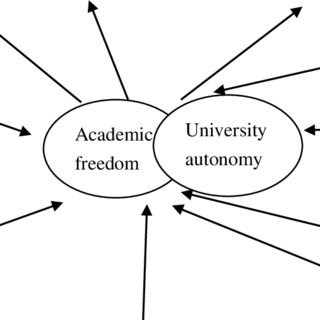Strategies to Promote Environmental Sustainability in Manufacturing Industry of India : Dr Shahla Kauser
- Post By PoliticIndia.com on
- 2014-02-13 23:07:45
India has experienced a rapid growth after the economic reforms of 1991. This rapid growth has been resulted in notable economic achievements and has brought many benefits to India. Although the economic growth and poverty reduction have been impressive, it has been caused environment degradation and growing scarcity of natural resources. Economic liberalization has accounted for a substantial impact on the manufacturing industry through an increase in the presence of manufacturing units or industry. And this industrialization has following impacts:-
Air Pollution
Industrial air borne emissions emitted from various industries are a cause of major concern. The primary air pollutants attributed to industry are sulphur dioxide, suspended particulate matter (SPM), oxides of nitrogen and greenhouse gases (GHGs). Air emissions are primarily generated through the combustion of fuels for energy production. Sulphur dioxide is formed when sulphur-containing fuels like coal and oil are burned. In the same vein, oxides of nitrogen and GHG emissions are attributed to fuel combustion for energy generation in motor vehicles, power stations and furnaces. GHGs are also emitted as a result of process-based reactions something that is significant in the Cement and Iron & Steel sector.
Water Security and Pollution
India faces a two-fold issue in water security: decreasing water availability and increasing water pollution in groundwater and surface resources. An increasing population and greater industrial activity is putting pressure on present water sources. Per capita water availability has reduced significantly from 1,816 cubic meters per capita in 2001 to 1,588 cubic metres in 2010. Water pollution comes from three main sources: domestic sewage, industrial effluents and run-off from activities such as agriculture. Wastewater from industrial activities is often contaminated with highly toxic organic and inorganic substances, some of which are persistent pollutants and remain in the environment for many years.
Air and water is life because plants and animals cannot live without these things. These are needed to ensure food security, feed livestock, maintain organic life, take up industrial production and to conserve the biodiversity and environment. In a recent environmental survey of 132 countries, India ranked 126th overall and last in the 'Air Pollution (effects on human health)' ranking. This survey is conducted and written by environmental research centres at Yale and Columbia universities with assistance from outside scientists. The survey concluded that India has the worst air pollution in the entire world, beating China, Pakistan, Nepal and Bangladesh. Also, according to another recent WHO survey, across the G-20 economies, 13 of the 20 most polluted cities are in India. The condition of water security in India is also worsening. Due to growing human population, severe neglect and over-exploitation of this resource, water is getting polluted and becoming a scarce commodity.
Unfortunately, the rapid growth of a country's reliance on rapid resource extraction ultimately results in environmental degradation. By keeping this view our policy maker has put certain provision in the constitution:-
(a)Article 48-A of our Constitution, which reads as follows: "The State shall endeavour to protect and improve the environment and to safeguard the forests and wildlife of the country".
b) Environmental protection is a fundamental duty of every citizen of this country under Article 51-A (g) of our Constitution which reads as follows: "It shall be the duty of every citizen of India to protect and improve the natural environment including forests, lakes, rivers and wildlife and to have compassion for living creatures."
c) Article 21 of the Constitution is a fundamental right which reads as follows: "No person shall be deprived of his life or personal liberty except according to procedure established by law."
So, it is the duty of state to provide pollution free environment to its citizen and also it is the duty of citizen to protect and improve the natural environment of our country. In order to tackle the above environmental problem, the Working Group of Planning Commission of India advocates the need for India to achieve 'Rapid Ecologically Sustainable Industrial Growth', which would require a transformation towards green manufacturing and adoption of environmental sustainability practices by manufacturing companies, and has accordingly identified 3 cross-cutting strategic paths where immediate focus is required to align environmental sustainability within the manufacturing industry:
Mainstreaming and promoting green business:
Green business denotes that an organization employs efficient and clean practices, technologies and processes within its operations to lessen its adverse environmental impacts. Green business has to be made attractive. An environment has to be created wherein being green is not viewed as just an obligatory expectation of a company, but as an area of primary focus for the company to develop further and be recognised as a leader. Green business should be good business.
Protecting natural resources:
It is a clear understanding that natural resources have to be prolonged to their fullest use to maintain the aim for continual economic growth and lessen environmental impacts. This involves reducing wastage in operations, utilising waste products through recycling and recovery practices to further ensure the long-term availability and usefulness of natural resources.
Addressing funding issues:
A major stumbling block on making green business widespread in the manufacturing industry is the lack of financial resources. The primary focuses of funding of the Working Group looks at R&D for developing clean technology and processes and assisting MSMEs, a major source of industrial pollution, to replace existing obsolete and inefficient systems. R&D funding assistance will look at leveraging the knowledge of educational institutions with the experience of manufacturing industries to create technologies.
Under these 3 strategic paths to promote and ensure environmental sustainability in the manufacturing industry, the Working Group has identified 7 recommendation areas with specific strategies and targets:
- 1. Green Products:
Promoting and creating market demand for green products, where requirements for a product to be deemed as a green product will be mandated through National Standards on Green Products.
- 2. Green Buildings:
Promoting and creating market demand for the construction and utilization of green buildings
- 3. Sustainable Environment Management in MSMEs:
Forming tailored and scale-specific compliance mechanisms and measures to ensure compliance in MSMEs
- 4. Environmental Regulatory Reforms and Market Based Instruments:
Reforming the environmental regulatory system and mechanism, by strengthening regulatory institutions and existing regulations, and through the formation of new industry focused policies to improve environmental conditions.
- 5. Organized Waste Management and Recycling Industry:
Promoting a national recycling industry within the currently unorganized recycling sector with a particular focus on mainstreaming research and design for recycling and recovery technology and mainstreaming them to industry.
- 6. Green and Clean Technology Fund:
Formation of green and clean technology fund for funding research and design of green and clean technologies, and promoting green entrepreneurs.
- 7. Disclosure on Performance:
Promoting disclosure of the environmental performance of a company, in line with national benchmarks for resource usage and waste generation.
The Central Pollution Control Board has identified 17 highly polluting industries, the majority of which are manufacturing industries. Aluminium, Copper, Iron & steel, Cement, Sugar, Pulp and paper, oil refineries, Pharmaceuticals, Petrochemicals, Power plants are among these highly polluting industries. The data of pollution control board reveals that only 71 % of the total industries in the 17 categories have adequate pollution control facilities to ensure compliance with regulations found defaulting with respect to pollution control. The remaining industries have been found to be in non-compliance with regulations mandating pollution technology. It means around 30 percent industries are still not following the strategies to promote environmental sustainability and those which are following are also defaulters. This is a very serious concern. Government should take care of this and should make some mechanism to tackle this problem. If our state fails to protect environment from getting polluted at the cost of the fundamental right to life of our citizens and fail to check reckless exploitation of flora and fauna in the mad race of economic development at the cost of the existence of human race, it is a matter of highest concern. Any development without humane concern is suicidal.





